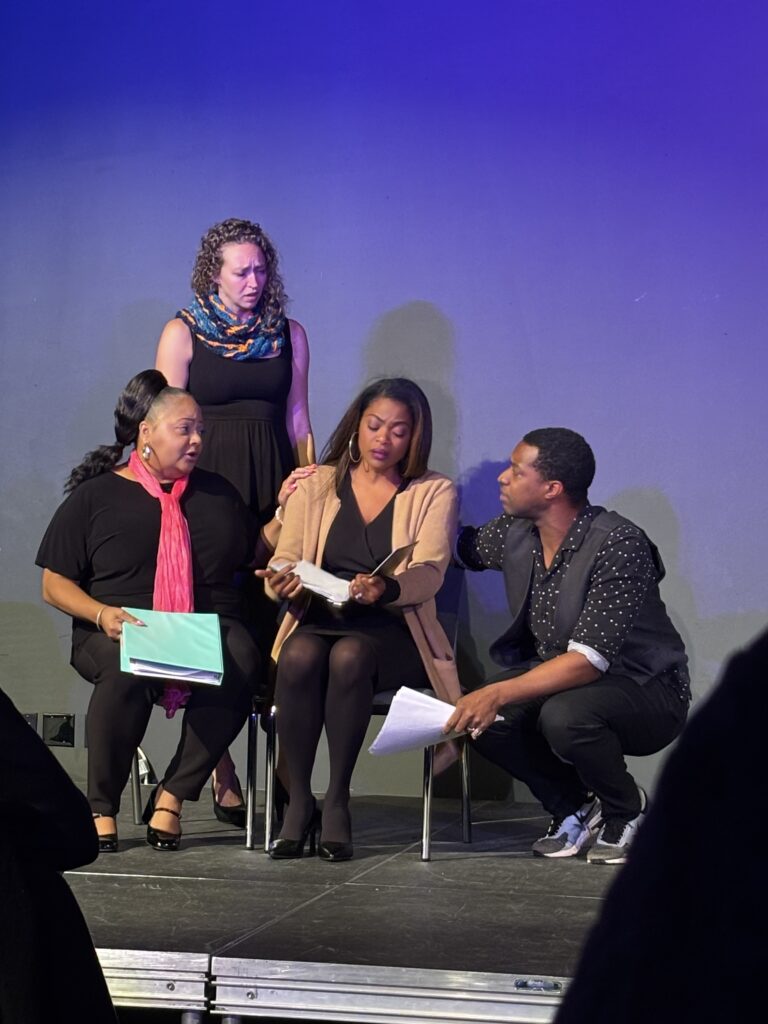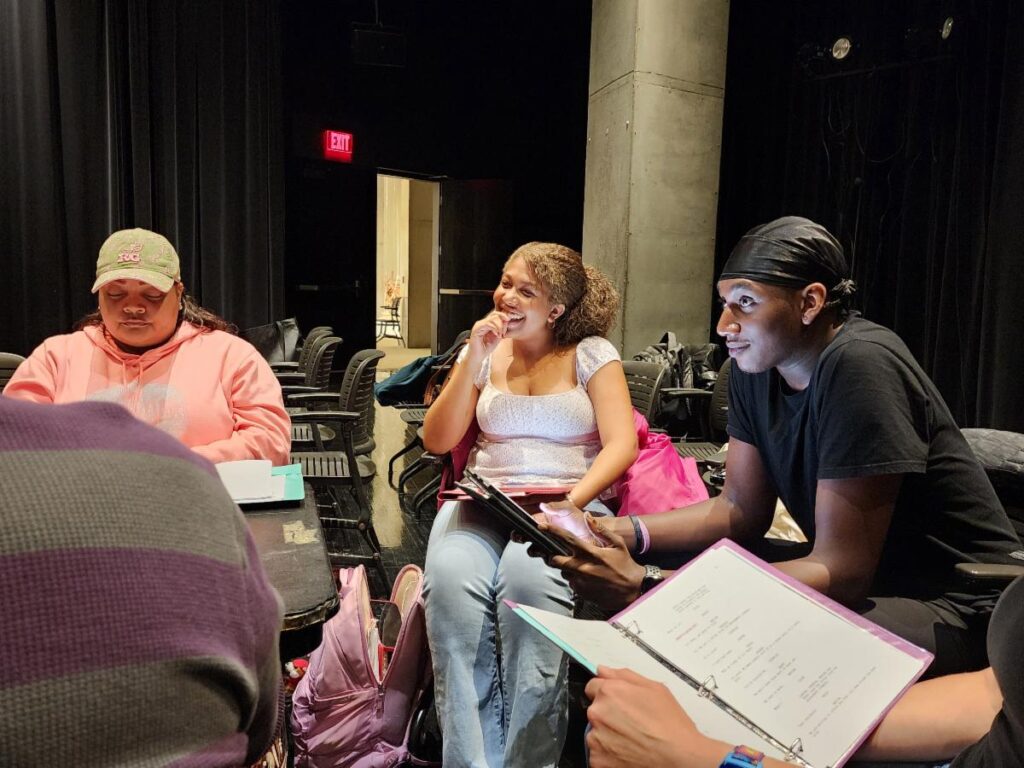Megan Benjamin Bennett’s new play-in-progress beats with the pulse of a real-world city
Review by Shawn Maus
The Plot
The play opens on the heels of Miss Angela’s funeral. The passing of the “heart of the building” leaves a void among the residents who called her family. Through Brandy’s grocery dream, George’s grief, and the everyday rhythms of seven other tenants, playwright Megan Benjamin Bennett draws a portrait of transformation, grief, and found family.
But just as we begin to settle into these lives, Act 1 ends with a gut punch, an overlapping,
whip-smart crescendo of dialogue that reveals the building has been sold. What happens to a
community when its foundation—both literal and emotional—is ripped away? It’s a cliffhanger
that lands hard.

The Setting and the Irony
Staged in both Madisonville (one of Cincinnati’s latest hubs of redevelopment) and at the Contemporary Art Center, the themes echo far beyond the page. The Madisonville neighborhood’s mixed-use boom has sparked real-world concerns about gentrification and the loss of affordable housing. To watch Clos(in)g here as I did, in this moment, adds an almost documentary layer to the experience. It’s a story about the heart of a community, told inside a community wrestling with its own identity.
The Reading
A staged reading (distinct from a full production) is often a work-in-progress moment where the
audience and creative team hears the text aloud and begins to see what the piece could become. That’s the electricity of the night. You’re not watching something finished, you’re witnessing its evolution.
Directed by Matthew David Gellin, this cast only received the script on Monday, but by Saturday’s reading, you’d swear they’d been living in it for months. Even with scripts in hand, there was chemistry, rhythm, and genuine connection. Some moments still need tightening (an expected step at this stage) but the emotional truth of the characters is already beating strong.

Why It Matters
A reading isn’t just entertainment—it’s feedback-loop territory. The audience becomes part of
the conversation. What you react to, what you lean into, what makes you laugh or sigh, all
feeds back to the playwright and director.
That exchange helps develop voices, stories, and under-represented perspectives that might not
otherwise reach a main stage. In this case, Clos(in)g gives voice to people living at the edges of
redevelopment, holding on to hope, history, and home.
The beauty of American Legacy Theatre’s process is that they commit to working with a playwright for two years. In an era when arts funding is precarious and new voices often get lost, that kind of long-term investment is extraordinary. It turns audiences into collaborators and makes theatre become a living, breathing dialogue.
Shawn Says:
Clos(in)g Act 1 isn’t just the start of a play, it’s the start of a conversation. It reminds us that
theatre doesn’t have to be polished to be powerful. Sometimes the most compelling stories are
the ones still finding their shape, asking for our ears, hearts, and voices to help them grow.
At its heart, Clos(in)g Act 1 is a story of community and the fragile balance between belonging and displacement.

Mark your calendar
The full staged reading of Megan Benjamin Bennett’s Clos(in)g will take place May 16–17, 2026(venue TBA). After the performance, audiences will join a talkback with the playwright. Then cast their vote on whether the play moves forward to a world-premiere production.
Learn more about Clos(in)g, the Playwrights for Change program, and other new works from American Legacy Theatre at americanlegacytheatre.org.
Video promo: https://www.facebook.com/share/r/1BT9ybC5xN/





